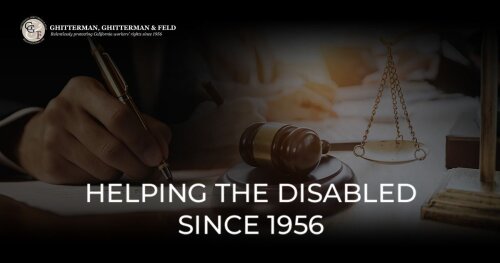Best Brain Injury Lawyers in Vermont
Share your needs with us, get contacted by law firms.
Free. Takes 2 min.
Or refine your search by selecting a city:
List of the best lawyers in Vermont, United States
About Brain Injury Law in Vermont, United States
Brain injuries are among the most serious injuries a person can experience, often resulting in lasting physical, cognitive, and emotional challenges. In Vermont, brain injury law deals with cases where an individual's brain injury is caused by someone else's actions or negligence. This area of law covers issues such as compensation for medical bills, lost wages, pain and suffering, and long-term care needs. The legal process can involve working with insurance companies, negotiating settlements, or pursuing litigation to ensure that injury victims receive appropriate support and justice.
Why You May Need a Lawyer
A knowledgeable lawyer is often essential for those dealing with the consequences of a brain injury. There are several situations where legal help may be necessary, including:
- You or a loved one suffered a brain injury in a car accident, workplace incident, slip and fall, or another event where someone else may be at fault.
- An insurance company is denying or undervaluing your claim for medical expenses or other damages related to a brain injury.
- You suspect medical malpractice led to a traumatic brain injury, either through surgical error, misdiagnosis, or lack of proper care.
- You are unsure of the full extent of compensation you are entitled to for pain, suffering, and future care needs.
- You need guidance understanding your rights under Vermont law and navigating the complex legal and medical issues involved in brain injury cases.
Having an experienced attorney can make a significant difference in ensuring you receive fair treatment and the financial support necessary for recovery.
Local Laws Overview
Vermont has specific legal principles and statutes relevant to brain injury cases. Here are some key aspects:
- Fault System: Vermont follows a modified comparative fault system. If you are found partly at fault for the accident, your compensation may be reduced by your percentage of fault. If you are 51 percent or more at fault, you cannot recover damages.
- Statute of Limitations: There is a limited time to file a brain injury claim in Vermont. For most personal injury cases, the statute of limitations is three years from the date of the injury. Cases involving medical malpractice have different rules that may extend or shorten this period.
- Types of Damages: Victims may be able to recover for economic damages (medical expenses, lost wages), non-economic damages (pain and suffering), and in rare cases, punitive damages when the responsible party’s conduct was especially egregious.
- Insurance Requirements: Vermont drivers must carry auto insurance, which often plays a central role in brain injury claims after vehicle accidents.
Understanding these laws is crucial for pursuing compensation and protecting your rights.
Frequently Asked Questions
What is a traumatic brain injury?
A traumatic brain injury (TBI) is damage to the brain caused by an external force such as a blow or jolt to the head. Symptoms can range from mild concussions to severe, life-altering impairments.
What are common causes of brain injury in Vermont?
Car accidents, falls, workplace incidents, sports injuries, and medical malpractice are among the most common causes of brain injury in Vermont.
How do I know if I have a valid brain injury claim?
If your brain injury resulted from someone else's negligence or wrongdoing, you may have a valid claim. A lawyer can help review the specific details of your situation.
What compensation can I recover after a brain injury?
You may be entitled to compensation for medical bills, lost wages, pain and suffering, rehabilitation costs, and future care needs. In some cases, you may also recover punitive damages.
How long do I have to file a brain injury lawsuit in Vermont?
Generally, you have three years from the date of injury to file a personal injury lawsuit in Vermont. Medical malpractice cases may involve different deadlines.
Can I still recover damages if I was partially at fault?
Yes, under Vermont’s modified comparative fault rule, you can recover damages as long as you were less than 51 percent at fault. Your compensation will be reduced by your percentage of fault.
What should I do if an insurance company denies my claim?
It is important not to accept a denial without consulting with a brain injury lawyer. They can help negotiate with the insurance company or, if needed, pursue legal action on your behalf.
How can a lawyer help with my brain injury case?
A lawyer can investigate your case, gather evidence, handle negotiations with insurers, calculate the full extent of your losses, and represent you in court if needed.
Do all brain injury cases go to court?
Not all cases go to court. Many are resolved through settlements. However, if a fair agreement cannot be reached, your lawyer can pursue your case in court.
What if my brain injury symptoms appear days or weeks after the accident?
It is not uncommon for brain injury symptoms to be delayed. Seek medical attention as soon as symptoms appear and discuss your legal options with a lawyer as soon as possible.
Additional Resources
If you are seeking more information or assistance, the following resources may be helpful:
- Vermont Department of Disabilities, Aging and Independent Living: Traumatic Brain Injury Program
- Brain Injury Association of Vermont
- Vermont Bar Association
- Office of the Vermont Attorney General
- Legal Aid clinics in Vermont for personal injury guidance
Next Steps
If you or a loved one has suffered a brain injury and believe it was caused by another party's negligence or misconduct, it is important to act promptly. Here are some suggested steps:
- Seek immediate medical attention and follow all recommended treatment plans
- Document your injuries, medical expenses, lost income, and any other effects of the injury
- Preserve any evidence related to the incident, such as photographs, accident reports, and witness information
- Avoid discussing your case or accepting settlements with insurance companies before speaking to a lawyer
- Contact an experienced Vermont brain injury lawyer for a consultation to understand your legal options and protect your rights
Taking these steps can help ensure you receive the proper support, guidance, and compensation as you move forward with recovery and any necessary legal action.
Lawzana helps you find the best lawyers and law firms in Vermont through a curated and pre-screened list of qualified legal professionals. Our platform offers rankings and detailed profiles of attorneys and law firms, allowing you to compare based on practice areas, including Brain Injury, experience, and client feedback.
Each profile includes a description of the firm's areas of practice, client reviews, team members and partners, year of establishment, spoken languages, office locations, contact information, social media presence, and any published articles or resources. Most firms on our platform speak English and are experienced in both local and international legal matters.
Get a quote from top-rated law firms in Vermont, United States — quickly, securely, and without unnecessary hassle.
Disclaimer:
The information provided on this page is for general informational purposes only and does not constitute legal advice. While we strive to ensure the accuracy and relevance of the content, legal information may change over time, and interpretations of the law can vary. You should always consult with a qualified legal professional for advice specific to your situation.
We disclaim all liability for actions taken or not taken based on the content of this page. If you believe any information is incorrect or outdated, please contact us, and we will review and update it where appropriate.
Browse brain injury law firms by city in Vermont
Refine your search by selecting a city.










